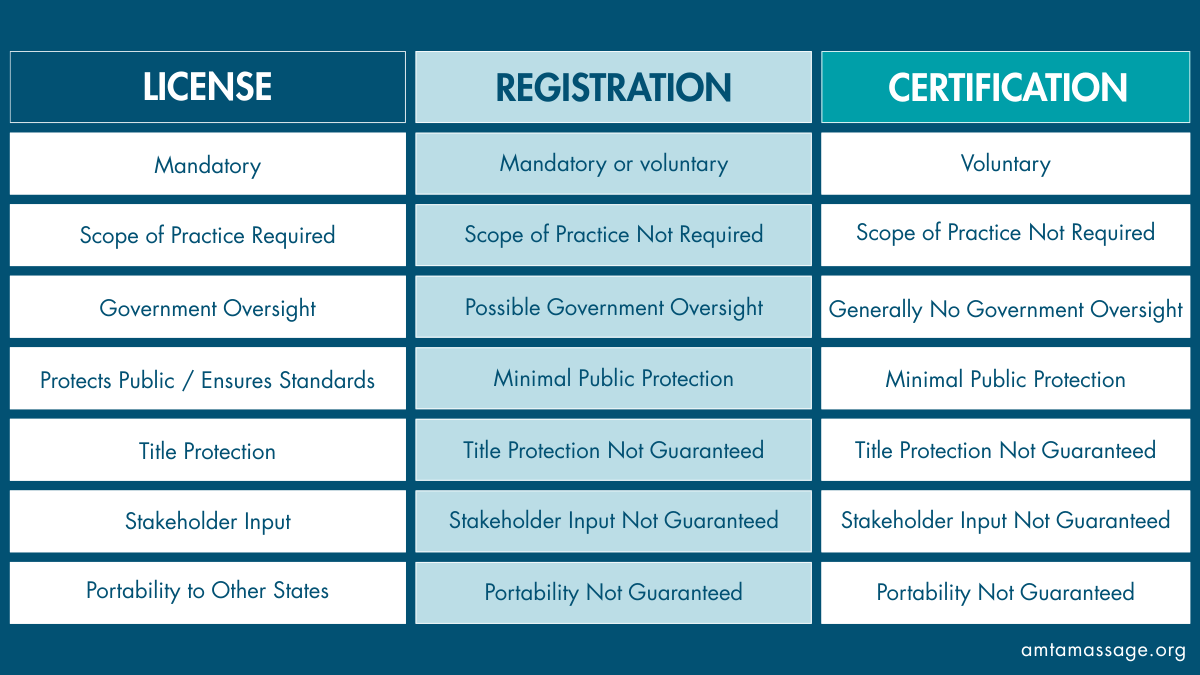Advocacy
AMTA and Advocacy
Learn more about AMTA and Advocacy.
Learn why fair licensing is essential for massage therapists in every state across the U.S.
May 1, 2025

Massage therapy plays a critical role in health and wellness, offering scientifically backed benefits ranging from pain relief to stress management.
Yet, despite its growing recognition within health care, the massage profession faces inconsistent licensing standards across the United States. AMTA has long been at the forefront of advocating for fair and consistent professional licensing in all 50 states and U.S. territories. Here’s why this initiative is essential and how AMTA’s work supports both the profession and the public.
Massage therapy licensure is the official recognition that an individual has met the required standards to practice massage therapy professionally in their state. It is a way to ensure that massage therapists are qualified, trained and capable of providing safe and effective care to their clients. The process for obtaining a massage therapy license typically involves education and training, certification or exam, a background check and continuing education for renewal.
Consistent Licensing Across States Provides Several Crucial Benefits:
There is often confusion around certification, registration and licensure. Here are the key differences:
In summary, certification is a voluntary process in which a non-governmental organization recognizes an individual’s qualifications. Registration, on the other hand, usually involves maintaining a list of practitioners with minimal oversight.
In contrast, licensure grants legal authority to practice, defines a scope of practice, and provides stronger public protection, professional accountability, and enhanced mobility for therapists across states. Because of these advantages, licensure is considered the most reliable and regulated form of recognition for massage therapists.

Achieving consistent licensing standards across the U.S. is not just a professional goal — it’s essential for ensuring the credibility, safety and growth of massage therapy. AMTA continues to advocate for statewide licensure in Kansas, Minnesota, California, Vermont and Wyoming — the last five states to achieve licensure in the U.S. AMTA will continue to lead the way, because championing statewide licensure benefits both massage therapists and their clients.
Licensing is one of the many ways AMTA is committed to elevating massage therapy to meet the evolving needs of health care. Join us as we advocate for meaningful change in the profession through fair and effective licensing standards! Visit AMTA's Action Center to learn more.
AMTA supports the concept of an interstate massage therapy compact as a way to improve portability for licensed massage therapists across states.
However, we have concerns with many barriers and restrictions on portability that are included in the current version of the Interstate Massage Compact (IMpact) legislation.
Since the inception of work leading up to the current IMpact, AMTA has been actively involved in reviewing and discussing its provisions, aiming to improve professional mobility while ensuring accessibility for more massage therapists across the country.
______________________________
Share Your Feedback on Massage Therapy Journal
Take our quick survey to share your insights and help us enhance our publication!